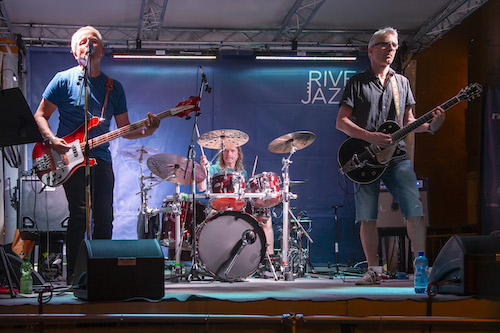
The Exiles playing at Nyon Rive Jazzy festival on 14 July 2022
Some of you know about local band The Exiles already, but for those that don't, we asked Colin Colvin to give us some additional information, "The Exiles arrived from the UK and Sweden with much semi-professional experience and were brought together through different contacts. Not being Swiss and living in Switzerland initially inspired the name ‘The Expats’ but ‘The Exiles’ came along soon afterwards and seemed cooler!"
Formed in Nyon in September 2010, The Exiles perform cover songs plus their original compositions but now mainly focus on their own compositions. This is not their day jobs, and they do this as a passion.
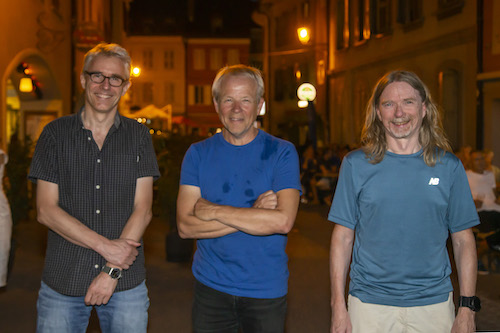
Oliver (left) - from Stirling (Scotland) skis & jogs, likes cheese & bacon toasties, Tartan Special, fan of Queen: plays guitar
Col (middle) - from London (England) into hiking, football, Frank Lloyd Wright, souris d'agneau, London Pride, fan of The Beatles: vox & plays bass
Henrik (right) - from Luleå (Sweden) skis & bikes, likes Big Macs, Tartegnin Clos de Roussillon, fan of Rush: plays drums
What has been the inspiration behind your musical style?
A mix of many different rock and pop artists who have created great melodies have created the sound of The Exiles.
How has the pandemic changed/influenced your creative side?
We were a covers band before the pandemic but always played a few compositions well received by the public. Our concerts were cancelled due to Covid so we took the opportunity to create many new songs with strong melodies. This then gave us the confidence to drop our cover song repertoire and the gamble has paid off. The public are really enjoying our efforts when hearing them for the first time. We're getting great feedback after our shows.
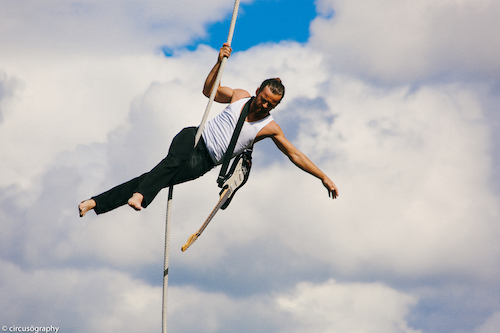
Monsieur le directeur comm, Photo credit: Circusography
After the success of its previous editions, Arts à la Rue, le festival éclaté, is back on the Geneva streets with even more shows.
From July 5 to August 11, every Tuesday and Thursday evening, make way for an offbeat universe. The Agrippa d'Aubigné Terrace, in the Old Town, will be transformed into a playground of discoveries punctuated by humor and tenderness.
On the program, a multitude of artistic talents where street theater, circus arts, musical humor, object theater, magic, puppetry and dance are mixed.
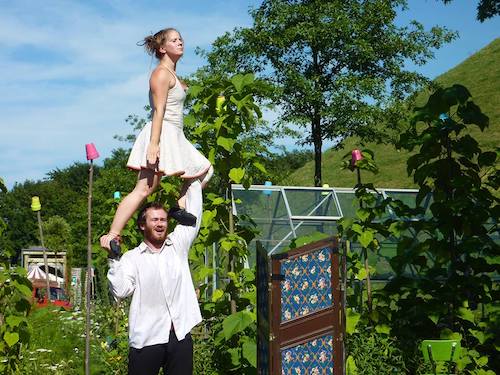
Fil à retordre, Photo credit: Pierre Colletti
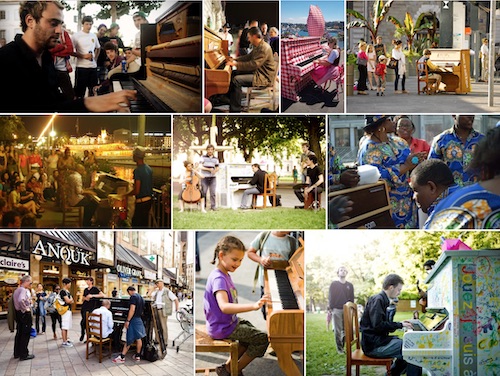
From Thursday, 9 June to Sunday, 26 June, the festival 'Pianos égarés' is back in the Geneva communes!
Come and try out one of the 18 self-service pianos available to passers-by in public spaces around Carouge, Chêne-Bourg, Cologny, Geneva, Perly-Certoux, Vernier, Versoix, and Veyrier. These musical moments in the streets and parks create new opportunities to meet and exchange with like-minded people.
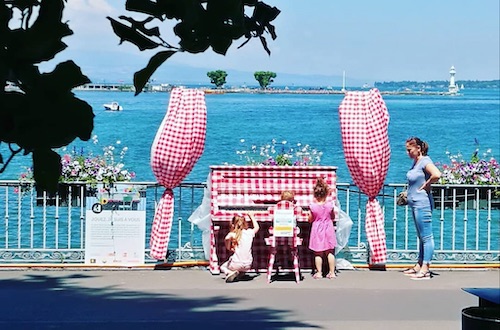
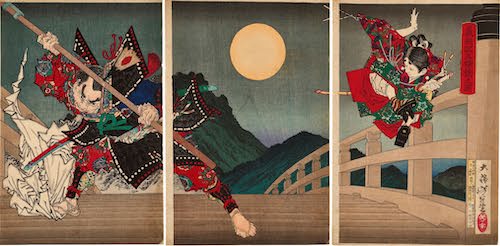
Tsukioka Yoshitoshi 月岡芳年 (1839-1892)
Illustration du pont Gojô de la Chronique de Yoshitsune, 1881
Fondation Baur, FB.DFC.2019.9 © Fondation Baur, photo Marian Gérard
The Fondation Baur exhibit on Japanese prints take place from 25 May through 24 July 2022 in Geneva. Make sure you try to pass by and see this exceptional showing of rare items.
This exhibition presents, through three distinct themes, a glimpse of the enormous diversity of subjects and styles that characterize Japanese printmaking in the second half of the 19th century. All of these works were produced between 1860 and 1890, three decades corresponding to the last years of the Edo period 江戸 (1603-1868) and the beginning of the Meiji era 明治 (1868-1912), a crucial period in the history of modern Japan that saw profound political and societal changes brought about, among other things, by the opening of the country to ideas and technologies from the West. The first part of the exhibition, the so-called "Yokohama images" (Yokohama-e 横浜絵), illustrates the initial phase of this exchange, that of the encounter with Westerners, marked above all by curiosity.
The second part, the hashika-e 麻疹絵 ("measles pictures") reflects the hopes and fears felt by the population in the face of a deadly epidemic in 1862. The exhibition concludes with a presentation of the great draftsman Tsukioka Yoshitoshi 月岡芳年 (1839-1892), whose professional career took place precisely between 1863 and 1892: deeply attached to the history and values of his country, he was also an innovative and creative artist.
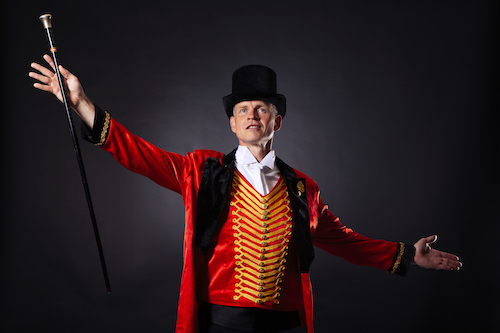
Casper Edmonds is Barnum in The Greatest Showman
Founded in 1972, GAOS (Geneva Amateur Operatic Society) is celebrating their 50th anniversary! To mark this milestone, GAOS is staging a unique show 17-19 June 2022, “A Night at the Musicals”, with a very festive ambiance for all ages. They are kindly offering a pair of tickets to one of our readers! Please read down to participate in the draw.
They will perform 30 hit songs from 14 recent Broadway and West End shows which the society has not yet staged. The cast is comprised of 45 adults and children; they will sing, dance, and bring the show to life in their own special way.
Extracts include songs and actions from:
- Les Misérables
- Wicked
- The Lion King
- Phantom of the Opera
- Jesus Christ Superstar
- A Chorus Line
- Come From Away
- The Book of Mormon
- Andrew Lloyd Webber's Cinderella
- Annie
- Frozen
- Matilda








